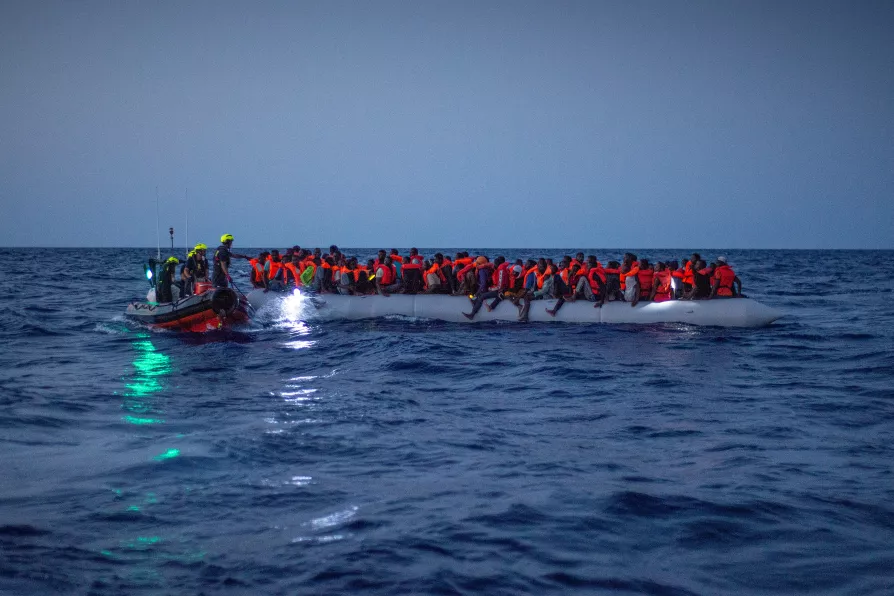This weekend, the NEU holds a special conference to debate changing its approach to organising teaching assistants, which a 2017 TUC agreement forbids. General secretary DANIEL KEBEDE outlines the choices before delegates

 A refugee boat in the central Mediterranean had been adrift for over a week. Civilian rescuers managed to reach them on Tuesday.
[Arez Ghaderi / SOS Humanity]
A refugee boat in the central Mediterranean had been adrift for over a week. Civilian rescuers managed to reach them on Tuesday.
[Arez Ghaderi / SOS Humanity]
ON September 5 Al Jazeera reported that 60 refugees stranded in the Mediterranean, mostly from Lebanon and Syria, had not got any help from European coastguards despite distress calls and reports of children among them dying. Instead, they were being watched from a container ship.
They were were eventually rescued by the Greek coastgaurd and a four-year-old girl died on her way to hospital three days after activists alerted them to the boat being in distress.
Such reports of criminal insensitivity are not an aberration. Every year, thousands of people die from drowning or go missing in the Mediterranean while trying to cross over to Europe from conflict-ridden, poor and developing nations in Asia and Africa.

A society that grows accustomed to ‘undesirable’ people also grows accustomed to undesirable deaths. Minneapolis serves as a wake-up call, including for our own refugee policies, writes MARC VANDEPITTE

The ongoing floods in Pakistan could have been largely prevented, writes ABDUL RAHMAN

Starmer sabotaged Labour with his second referendum campaign, mobilising a liberal backlash that sincerely felt progressive ideals were at stake — but the EU was then and is now an entity Britain should have nothing to do with, explains NICK WRIGHT

In the first half of a two-part article, PETER MERTENS looks at how Nato’s €800 billion ‘Readiness 2030’ plan serves Washington’s pivot to the Pacific, forcing Europeans to dismantle social security and slash pensions to fund it










